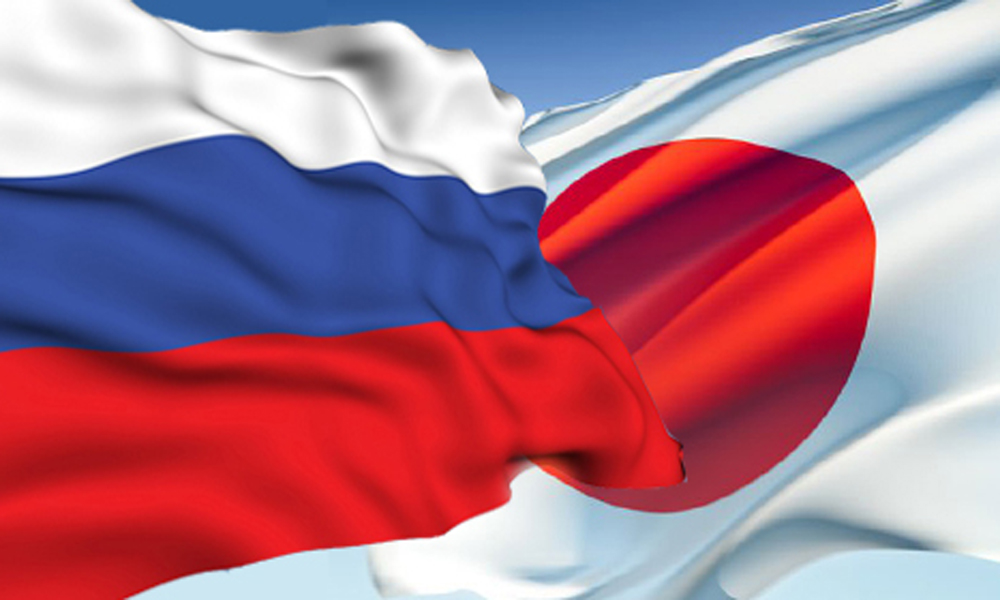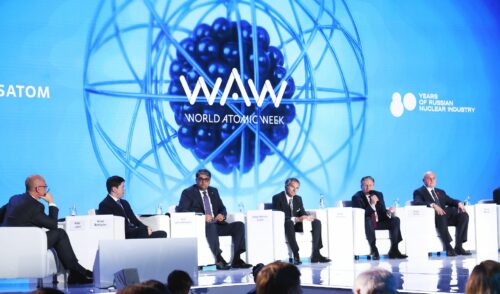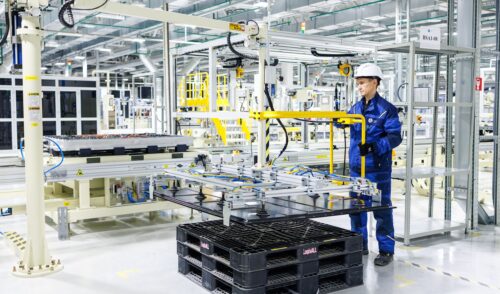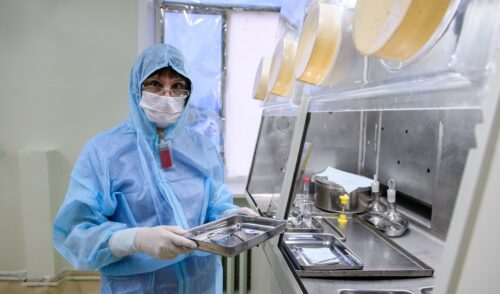
Russia and Japan Strengthen Cooperation on Nuclear Safety
back to contentsThe document was signed on 16 December by Rosatom CEO Alexei Likhachov, Japan’s Minister of Economy, Trade, and Industry Hiroshige Seko and Minister of Education, Culture, Sports, Science and Technology Hirokazu Matsuno in the presence of Russia’s President Vladimir Putin and Japanese Prime Minister Shinzo Abe.
Key areas of cooperation set out in the Memorandum are post-accident recovery at the Fukushima Daiichi Nuclear Power Plant, radioactive waste management, possible decommissioning, and prospects of creating a single environment for the exchange of expertise and knowledge between Russia and Japan to promote innovative nuclear technologies.
“Our plan for the medium term is to join our Japanese colleagues in recovery and decommissioning efforts at Fukushima, and deal with this legacy. This is an important initiative,” Mr. Likhachov told the media. “We have a request from the Japanese government and the station’s owner TEPCO, which will also operate the project. The work will take decades and is very costly. We will use the latest technologies we have. A detailed joint action plan will be agreed soon,” Rosatom CEO added.
Rosatom has repeatedly voiced its readiness to help Japan recover from the effects of the Fukushima accident. In the autumn of 2014, the Japanese government selected Rosatom’s subsidiaries RosRAO and Khlopin Radium Institute as partners for the pilot project to test a new technology for removing tritium from liquid radioactive waste accumulated after the accident at Fukushima-1, where tritium content is hundred times higher than the maximum permitted level. The technologies used at the station can clean the waste from cesium and strontium isotopes, but not from tritium. Russian nuclear engineers created a pilot cleanup plant that was successfully tested earlier this year at one of RosRAO’s test sites. In late 2015, German-based Nukem Technologies (controlled by Rosatom’s subsidiary AtomStroyExport) and Japan’s Mitsubishi Heavy Industries concluded a contract to carry out four feasibility studies for the recovery projects to be run at Fukushima.
New technologies in nuclear
The memorandum signed in Japan also provides for joint projects in developing closed nuclear fuel cycle technologies and using reprocessed spent nuclear fuel in pressurized water and fast neutron reactors. In the closed nuclear cycle, fuel is reproduced, or bred, in fast reactors, thus increasing the fuel stock in the industry and minimizing radioactive waste by ‘burning up’ hazardous radionuclides. At present, Russia is the only country that commercially operates fast neutron reactors and uses fuel reprocessing technologies unparalleled in terms of their safety. Before the Fukushima disaster, Japan operated its own fast breeder reactor known as Monju and made plans to build a nuclear reprocessing plant in Rokkasho. As of today, the reactor is mothballed while the plant construction has been repeatedly postponed.
Russia also intends to expand its enriched uranium supplies to Japan. “The memorandum strengthens our cooperation in enriched uranium supplies lasting for over 20 years. We appreciate it and are committed to expanding it whatever difficulties turn up in these troubled times,” Alexei Likhachov said.
EXPERT COMMENT
Dmitri Kumanovsky, Head of Analytics, LMS Investment
The memorandum marks further progress in the Russian-Japanese cooperation that started with enriched uranium supplies to Japan. Russia has proved to be a reliable supplier that has always fulfilled all of its contract obligations. In its turn, Japan contributed to the nuclear submarine disposal program by taking part in the construction of a long-term storage facility for submarine reactor sections at Zvezda Shipyard. The Russian-Japanese cooperation in nuclear is of great importance for science and economy. The countries are likely to continue their joint projects in radioactive waste management by migrating to Russia’s nuclear fuel cycle technology involving fast breeder reactors. Decommissioning efforts at Fukushima Daiichi also hold much promise as they can rely on Russia’s experience gained during the recovery operations at Chernobyl. This will contribute to the expertise of the two countries and lay the foundation for developing a single technology that can be used at Russian and Western-designed stations.




